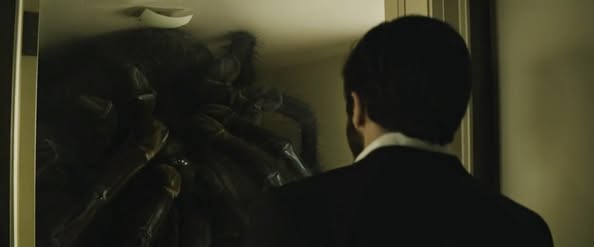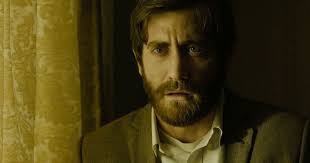Enemy (2013)

Enemy is a haunting psychological thriller that captivates audiences with its exploration of duality and identity. Directed by Denis Villeneuve, the film presents a meticulous blend of suspense, surrealism, and existential inquiry, making it a standout entry in contemporary cinema.
Set in a bleak and atmospheric version of Toronto, the narrative follows Adam Bell, a reclusive history professor played by Jake Gyllenhaal. Adam’s life is marked by monotony and solitude, reflecting the struggles of modern existence. His world is abruptly disrupted when he discovers a doppelgänger, Anthony Claire—a charismatic actor who shares his exact appearance. This shocking revelation triggers a series of events that force Adam to confront not only Anthony but also his own fragmented identity.
The film is structured around themes of duality, repression, and the subconscious. As Adam becomes increasingly obsessed with Anthony, the lines between their identities blur, leading to an unsettling exploration of self. The narrative is steeped in psychological tension, as Adam’s fixation drives him to seek out Anthony, resulting in a confrontation that is both eerie and poignant.

Villeneuve employs a rich visual language to enhance the film’s themes. The cinematography, characterized by its muted color palette and striking imagery, establishes a sense of unease that permeates the story. Each frame is meticulously composed, creating a dreamlike quality that reflects the inner turmoil of the characters. The use of shadows and dim lighting adds to the film’s oppressive atmosphere, reinforcing the feeling of entrapment that both protagonists experience.
Musically, the score composed by Danny Bensi and Saunder Jurriaans further amplifies the film’s unsettling tone. The haunting melodies and discordant sounds evoke a sense of dread, enveloping the viewer in a psychological landscape that mirrors Adam’s descent into obsession. The auditory experience complements the visual elements, creating a cohesive atmosphere that is both immersive and disorienting.

The performances in Enemy are particularly noteworthy, with Gyllenhaal delivering a remarkable dual performance that captures the complexities of both Adam and Anthony. He deftly navigates the contrasting personalities, portraying Adam’s introversion and vulnerability alongside Anthony’s boldness and charisma. This duality is not merely a plot device but serves as a profound commentary on the nature of self and the masks individuals wear in society.
The film’s ambiguous narrative invites multiple interpretations, encouraging viewers to engage deeply with its themes. The ending, shrouded in mystery, leaves audiences pondering the implications of identity and the human psyche. This openness to interpretation is a hallmark of Villeneuve’s work, as he challenges viewers to confront the darker aspects of their own existence.

Enemy can be seen as a reflection of contemporary anxieties surrounding identity in an increasingly fragmented world. It resonates with anyone grappling with the complexities of self-perception and the masks they wear in daily life. The film’s ability to evoke discomfort while prompting introspection is a testament to its artistic merit.
In summary, Enemy stands out not only for its gripping narrative and psychological depth but also for its compelling visual and auditory craftsmanship. Villeneuve’s direction, combined with Gyllenhaal’s exceptional performances, creates a film that is both unsettling and thought-provoking. It invites viewers to explore the labyrinth of their own identities while grappling with the shadows that lurk within. Enemy is a powerful exploration of what it means to be human—an experience that lingers long after the credits roll, challenging perceptions and inspiring reflection.











